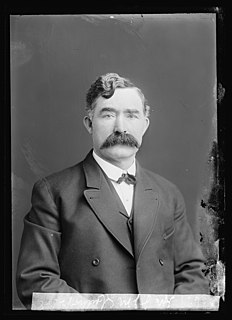A Quote by William McDonough
Recycling is more expensive for communities than it needs to be, partly because traditional recycling tries to force materials into more lifetimes than they are designed for - a complicated and messy conversion, and one that itself expends energy and resources. Very few objects of modern consumption were designed with recycling in mind. If the process is truly to save money and materials, products must be designed from the very beginning to be recycled or even "upcycled" - a term we use to describe the return to industrial systems of materials with improved, rather than degraded, quality.
Quote Topics
Because
Beginning
Communities
Complicated
Consumption
Conversion
Degraded
Describe
Designed
Energy
Even
Expensive
Few
Force
Improved
Industrial
Itself
Lifetimes
Materials
Messy
Mind
Modern
Money
More
Must
Needs
Objects
Partly
Process
Products
Quality
Rather
Recycled
Recycling
Resources
Return
Save
Systems
Term
Than
Traditional
Tries
Truly
Use
Very
Were
Related Quotes
The Pacific coral reef, as a kind of oasis in a desert, can stand as an object lesson for man who must now learn that mutualism between autotrophic and heterotrophic components, and between producers and consumers in the societal realm, coupled with efficient recycling of materials and use of energy, are the keys to maintaining prosperity in a world of limited resources.
In the sixties, the recycling of pop culture turning it into Pop art and camp had its own satirical zest. Now we're into a different kind of recycling. Moviemakers give movies of the past an authority that those movies didn't have; they inflate images that may never have compelled belief, images that were no more than shorthand gestures and they use them not as larger-than-life jokes but as altars.
Recycling helps make people feel involved, and in some cases can be useful. Although you've got to do careful life history studies of what you're recycling. If all you're doing is recycling - if you've got three automobiles, and 10 children, and a 7,000-square-foot dot-com palace and second home up in the mountains that has to be heated - the recycling isn't making much difference.
A real challenge that I've had with my company, Bayou With Love, is getting people to understand that using post-consumer materials does not mean that you are getting a "less than" product than one made with virgin materials. I use a lot of post-consumer plastic in Bayou's clothing. I use it in our bags, which are made from recycled plastics from the ocean.
People, materials, facilities, money, and time are the resources available to us for conducting our business. By applying our skills, we turn these resources into useful products and services. If we do a good job, customers pay us more for our products than the sum of our costs in producing and distributing them. This difference, our profit, represents the value we add to the resources we utilize.
The chemists work with inaccurate and poor measuring services, but they employ very good materials. The physicists, on the other hand, use excellent methods and accurate instruments, but they apply these to very inferior materials. The physical chemists combine both these characteristics in that they apply imprecise methods to impure materials.







































